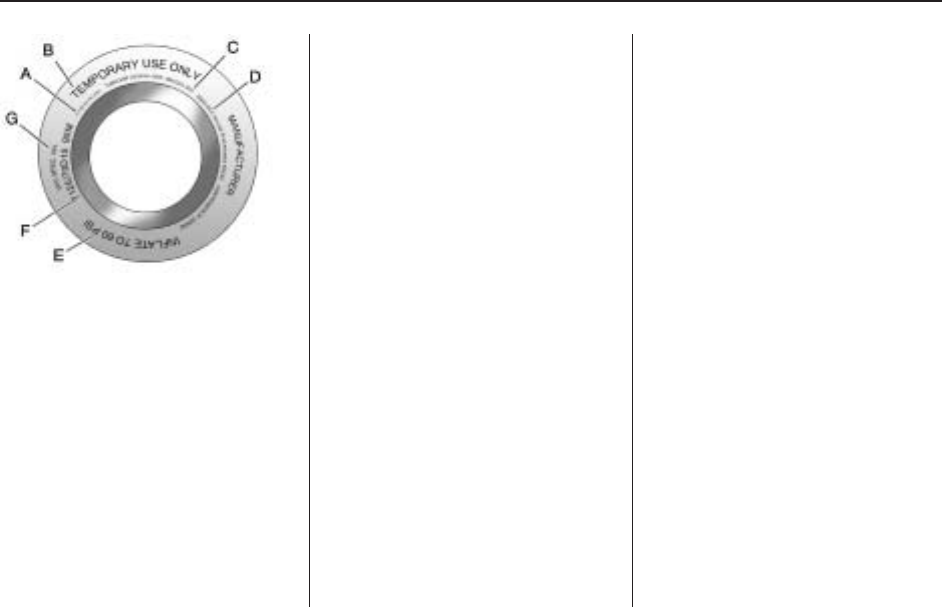
(A) Temporary Use Only: The
compact spare tire or temporary
use tire has a tread life of
approximately 3,000 miles
(5 000 km) and should not be
driven at speeds over 65 mph
(105 km/h). The compact
spare tire is for emergency use
when a regular road tire has
lost air and gone flat. If your
vehicle has a compact spare tire.
See Compact Spare Tire on
page 9-83 and If a Tire
Goes Flat on page 9-66.
(B) Tire Ply Material
: The type
of cord and number of plies
in the sidewall and under
the tread.
(C) Tire Identification Number
(TIN)
: The letters and numbers
following the DOT (Department
of Transportation) code is
the Tire Identification Number
(TIN). The TIN shows the
manufacturer and plant code,
tire size, and date the tire
was manufactured. The TIN is
molded onto both sides of
the tire, although only one side
may have the date of
manufacture.
(D) Maximum Cold Inflation
Load Limit
: Maximum load
that can be carried and
the maximum pressure needed
to support that load.
(E) Tire Inflation
: The
temporary use tire or compact
spare tire should be inflated
to 60 psi (420 kPa). For
more information on tire
pressure and inflation see
Inflation - Tire Pressure on
page 9-49.
(F) Tire Size
: A combination of
letters and numbers define a
tire’s width, height, aspect ratio,
construction type, and service
description. The letter T as
the first character in the tire size
means the tire is for temporary
use only.
(G) TPC Spec (Tire
Performance Criteria
Specification)
: Original
equipment tires designed to
GM’s specific tire performance
criteria have a TPC specification
code molded onto the sidewall.
GM’s TPC specifications meet
or exceed all federal safety
guidelines.
Compact Spare Tire Example
9-44 Vehicle Service and Care


















